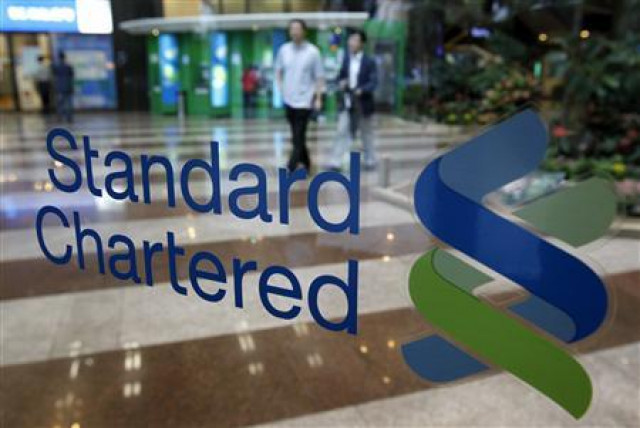Standard Chartered sparks scrutiny of India offshoring
Standard Chartered came under scrutiny with allegations.

Cost savings, not escaping regulatory oversight, are generally assumed to be the primary goal of sending back-office work to India, where employees are paid far less than in the United States and much of Europe.
New York State's bank regulator accused Standard Chartered on Monday of setting up an offshore regulatory compliance system dealing with Iranian banking transactions that was "a sham” meant to escape U.S. Treasury Department oversight.
Regulator Benjamin Lawsky, head of the New York Department of Financial Services, issued an order accusing Standard Chartered of hiding 60,000 transactions tied to Iran worth $250 billion over a decade, resulting in substantial fees.
Standard Chartered Plc has said it "does not believe the order issued by the Department of Financial Services presents a full and accurate picture of the facts."
U.S. and European companies will move 750,000 jobs in information technology, finance and other business services to India and other low-cost nations by 2016, according to the Hackett Group Inc, a U.S. consultancy.
India, because of its English-speaking population and low wages, is an especially attractive offshoring destination, receiving 58 percent of global outsourcing contracts last year, according to industry estimates.
Offshoring to India has been a political issue in the United States, with the focus usually being on the jobs it takes away from Americans, suffering from a stubbornly high unemployment rate.
The issue will give more ammunition to groups that oppose outsourcing because of fears of job losses, said Sudin Apte, chief executive of independent advisory and research firm Offshore Insights. But he did not see a long-term effect.
"Some more rigor in compliance, some more rigor in scrutiny and process adherence ... but I think I would welcome that because that makes the system perfect or near perfect," he said.
IRAN TRANSACTIONS EYED
Global banks and financial services companies are among the biggest outsourcers to Indian companies, including Infosys Ltd and Tata Consultancy Services Ltd, which provide services ranging from payroll management to maintaining IT networks.
Indian outsourcing firms such as Wipro and Tata already are marketing compliance services for the 2010 Dodd-Frank Wall Street reform act, which will require U.S. banks to provide massive amounts of data on their risk exposure.
Many banks, including HSBC Plc, JPMorgan Chase & Co and Royal Bank of Scotland Group Plc, also have their own facilities in low-cost India with thousands of employees.
The Big Four accounting and consulting firms, Deloitte, Ernst & Young, KPMG and PwC, also are offshoring some audit work for U.S. companies to India, where salaries for accountants are a fraction of those in the United States.
In the case of Standard Chartered, compliance work was being done in India on financial transactions, including those tied to Iran. The United States imposed economic sanctions on Iran in 1979.
Lawsky has alleged that Standard Chartered's staff in India was not trained to determine whether the transactions were valid under U.S. rules on Iranian trade.
Those rules are overseen by Treasury's Office of Foreign Assets Control (OFAC), the state regulator said.
The New York regulator said the bank's failures included “outsourcing of the entire OFAC compliance process for the New York branch to Chennai, India, with no evidence of any oversight or communication between the Chennai and the New York offices."
Scope International, Standard Chartered's wholly owned back office outsourcing centre, is based in the south Indian city of Chennai and employs more than 8,500 people.
A spokeswoman for the bank in Mumbai declined to comment.
The bank has put the value of Iran-related transactions that did not comply with regulations at less than $14 million, much less than Lawsky's multibillion-dollar estimate.



















COMMENTS
Comments are moderated and generally will be posted if they are on-topic and not abusive.
For more information, please see our Comments FAQ